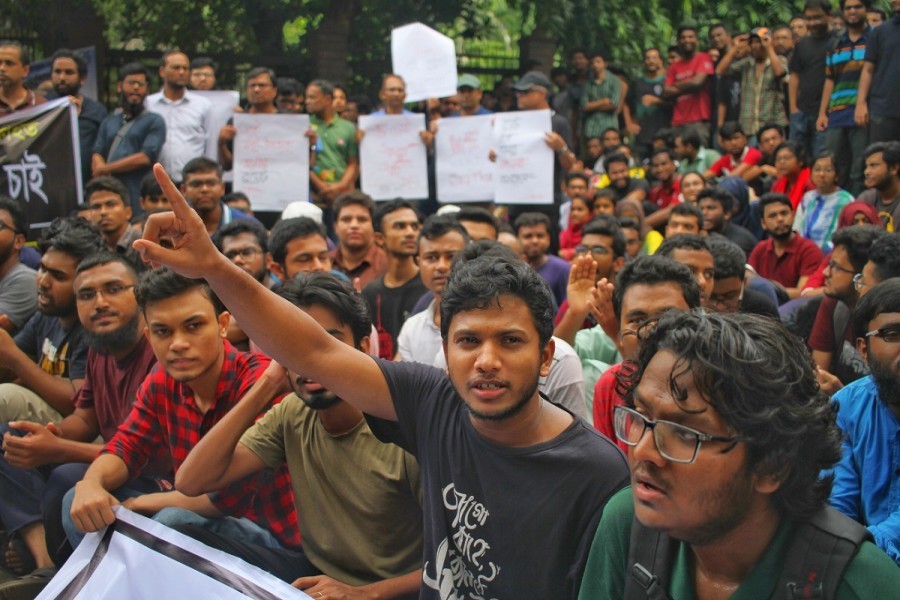
Published :
Updated :

Politics on the educational campuses, or student politics, in short, has often been glorified in the political history of the country. Especially, in the second half of the last century, the universities of the country turned into the battlegrounds for socio-political movements for change. Historically, that period was a charged one with various radical ideas of change inspired by the communist revolution that took place in Russia in the early part of the last century followed by the Chinese revolution in the middle part of that century. The West, too, was reverberating with youth movements protesting against capitalism impacted by the revolutionary struggles worldwide, civil rights movement in America, anti-consumerism, anti-American imperialism, you name it. The post-WWII generation in the West was against the existing order of things. And, of course, it all started from the then-Gaullist France, the cradle of European revolutions. And the waves of those political and cultural movements also crashed against the shores of this part of the world. The youths from the feudal and middle class social backgrounds of this land were naturally drawn in droves towards the radical ideas of social change. But social, cultural and political movements are the products of societies from which they emerge.
In a basically feudal, semi-feudal and post-colonial background, many of those radical Western ideas emerging from highly advanced capitalist, consumerist socio-economic settings were essentially alien 'isms', which could not sway the broad masses of the country. And, small wonder, from the ideas of democracy to the linguistic nationalism to communistic ideologies that our university-going middle class youths were so fond of and sometimes fought for failed to infiltrate the mainstream society. The independence struggle of 1971 was mainly fought by the masses of the peasantry and the working people of the country as the attacks by the occupation forces of the Pakistan became an existential threat to them. Their adult boys along with the urban and middle-class-origin youths from the universities also joined the liberation struggle with their various ideologies. Perhaps the aspirations and dreams of the rural youths from the peasant and working class backgrounds who fought side by side their elitist counterparts from the middle class background with their university education during the independence war remained stranger to one another even to this day. It is not that the overwhelming number of the youths in the rural society did not come of age. In fact, they know what they want and that is why they risk their lives to cross the seas and deserts in search of jobs and a better life for themselves and their families at home. They are honest and hardworking people. They are born builders. If their own society cannot accommodate them, they would build for others who would take them. On the contrary, it is the idealists from the middle class mainly from universities who are yet to come of age.
Now coming to the students in general: do they really like campus politics? The ongoing movement against campus politics being waged by the students of Bangladesh University of Engineering and Technology (BUET) is a case in point. It is not an isolated event, even though, this particular movement has its specific origin related to campus violence leading to the death of a BUET students four and a half years ago. Identical incidents also had happened even before independence days.
It is time for our political historians to consider the issue in an unbiased manner.
sfalim.ds@gmail.com


 For all latest news, follow The Financial Express Google News channel.
For all latest news, follow The Financial Express Google News channel.